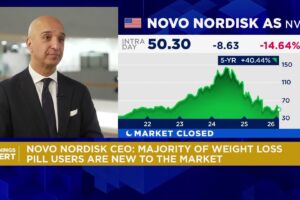The recent Supreme Court 4/5 ruling upheld the decision of the Ninth Circuit Court of Appeals in Pepper vs Apple AAPL that Apple device users can sue the company over its App Store.
Since Apple has total control over the distribution of iOS apps through its app store, since it prevents users from getting iOS apps from anywhere else and charges a hefty 30% of revenues generated from all apps sold there, the plaintiffs contend that developers are forced to pass on Apple’s commission to customers, thus inflating prices.
In its appeal to the Supreme Court, Apple argued that the plaintiffs don’t have a case because the apps are sold by the distributors to the consumers and they are the ones determining app prices. But the Court says that these are technicalities and Apple can’t deny its direct relation with device owners from whom it collects payment.
This doesn’t of course mean that Apple is guilty of antitrust activity, especially since there’s no collusion involved and also as Apple says, it merely charges for the service of maintaining a secure and malware-free platform where each app goes through a stringent vetting process. What it does mean however is that developers and consumers can now sue it.
Apple is confident that it can prove its innocence and the plaintiffs are equally confident that they can prove guilt. They may be both right and wrong.
Wrong because app developers can also make apps for the Android or other ecosystem, they don’t have to make apps for iOS. Moreover, Apple’s 30% charge is only for digital services on its platform and not for other apps.
But there are good reasons why they may be right-
First, this is not the way other app ecosystems function. For example, Android also charges 30%, but users are free to download their apps from anywhere other than Alphabet’s GOOGL Play Store. So in case of Android users, they have the choice of paying the 30% fee or not. If the service provided is valuable, which it must be for some, they can choose to buy the apps from the Play Store.
Microsoft MSFT also has an online store for apps, but it charges 5% to try and woo users who are under no obligation to use it. Apple denies this choice to users and has even moved to make jailbreaking (modifying the device to remove manufacturer restrictions) illegal.
Second, Apple claims that developers have the choice of targeting people other than iOS users. This of course shuts out a market segment for them and limits user choice, which is highly anti-competitive.
Third, Apple says it isn’t a monopoly but by its own rules, it is the sole distributor of iOS apps.
Fourth, it denies a direct relationship with users in the process of app sales to them. But the stewardship of its user base enables it to negotiate terms with app makers. Therefore, its users give it leverage against them. Apple in turn becomes the gatekeeper of all goods/services flowing through to its users.
Fifth, in case of services such as Spotify SPOT, Apple offers a competing service such as its Music. So when it charges Spotify for a fee that it doesn’t earn (Spotify doesn’t need the platform for anything because it is so well-established and its website downloads are as secure as anywhere else), it is nothing short of extortion. Particularly so because by forcing Spotify to raise prices or go bankrupt, Apple gives its own service a leg up, thereby limiting competition.
<p class="canvas-atom canvas-text Mb(1.0em) Mb(0)–sm Mt(0.8em)–sm" type="text" content="Conclusion” data-reactid=”24″>Conclusion
These are early days yet and Apple will no doubt keep the matter in courts for several years. After that, it may have to alter its practices and/or pay damages to users/developers. Developers of course won’t be in any hurry to sue it because they need the sales. If the Pepper lawsuit wins though, other class action lawsuits may follow.
Apple could alternatively charge a lower fee to pacify users. Since this could compromise app store maintenance, it’s extremely unlikely that Apple will do this.
Whatever the outcome, this is a bad time for such a thing to happen, just as Apple is trying to metamorphose into a services company.








